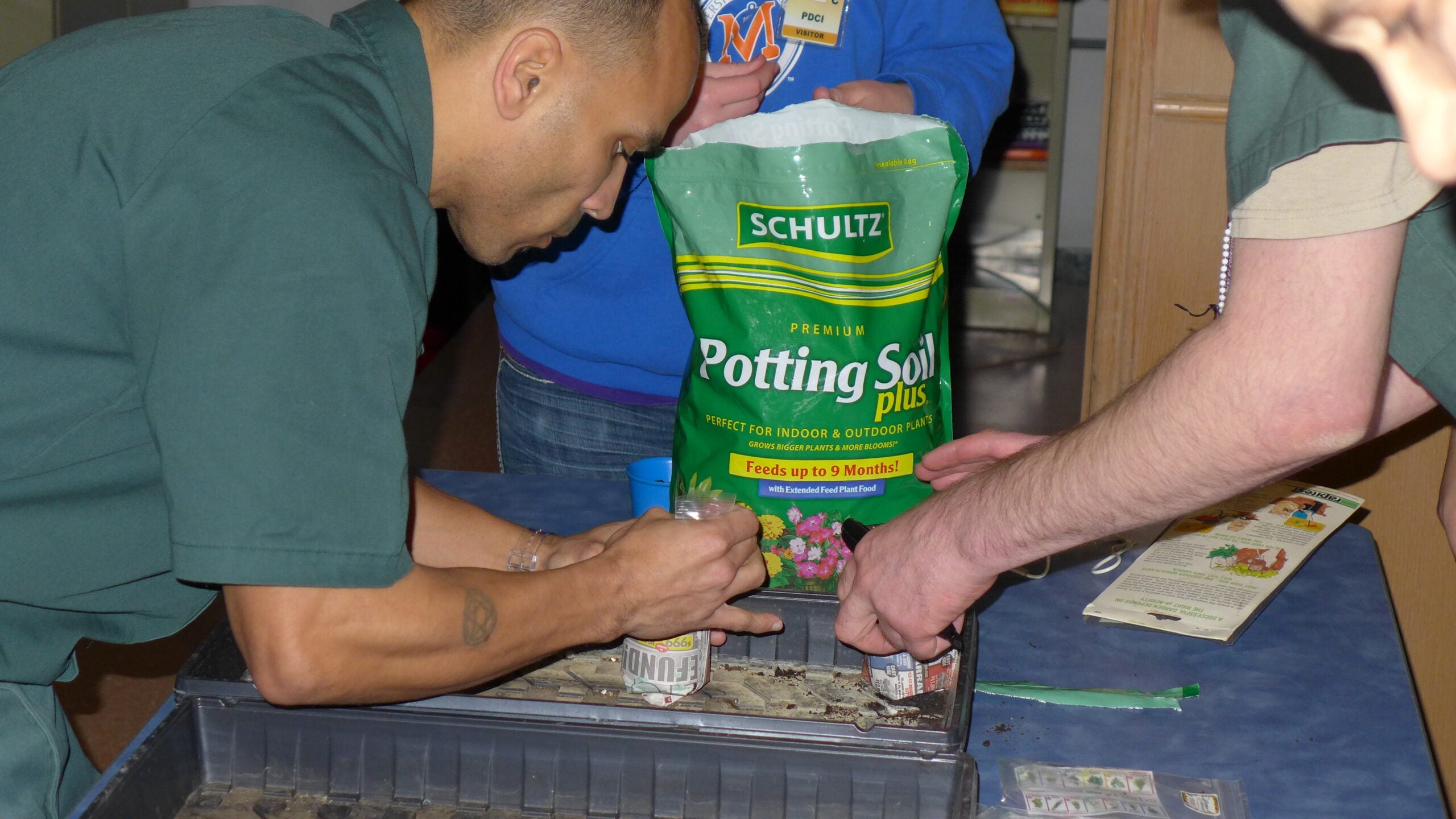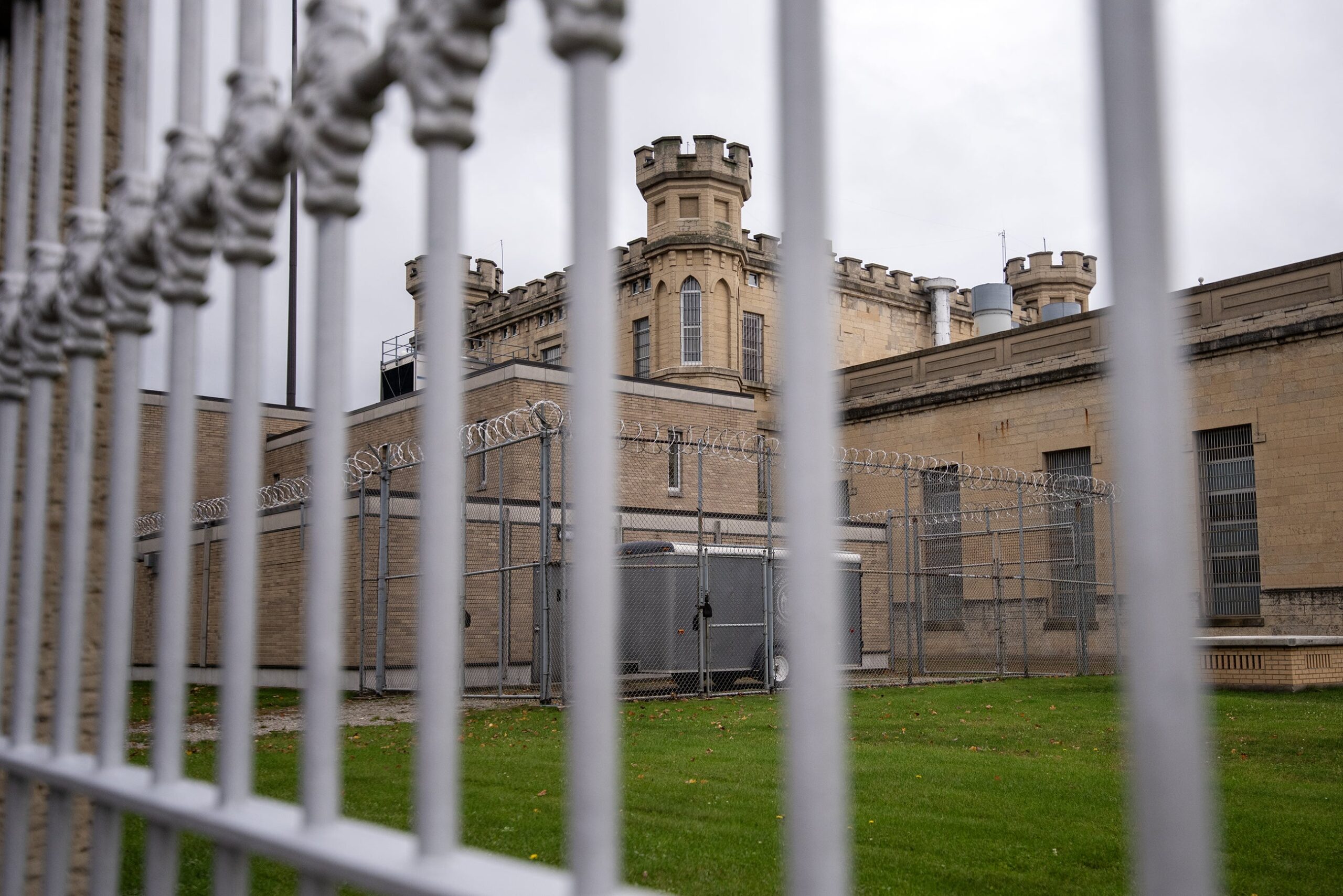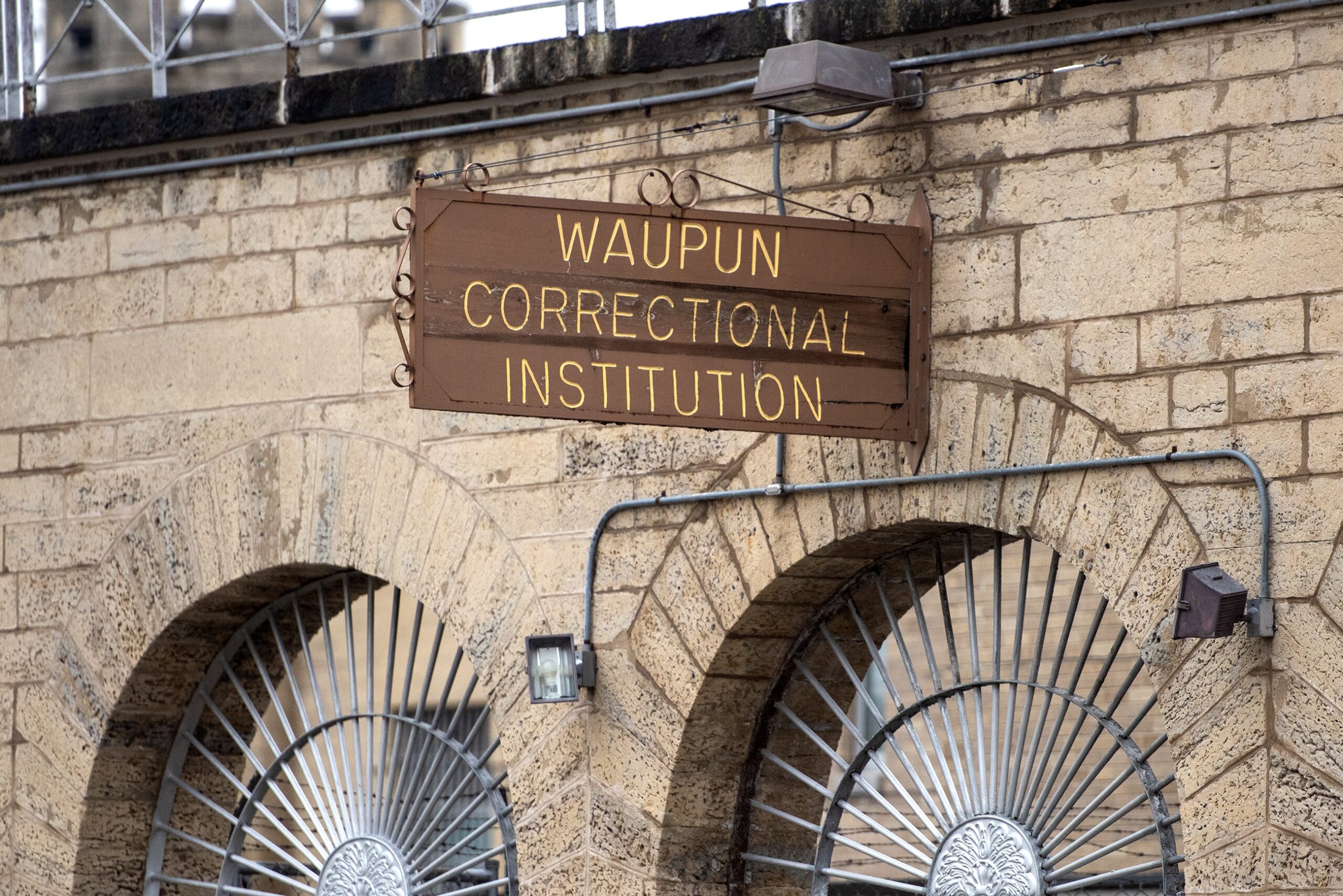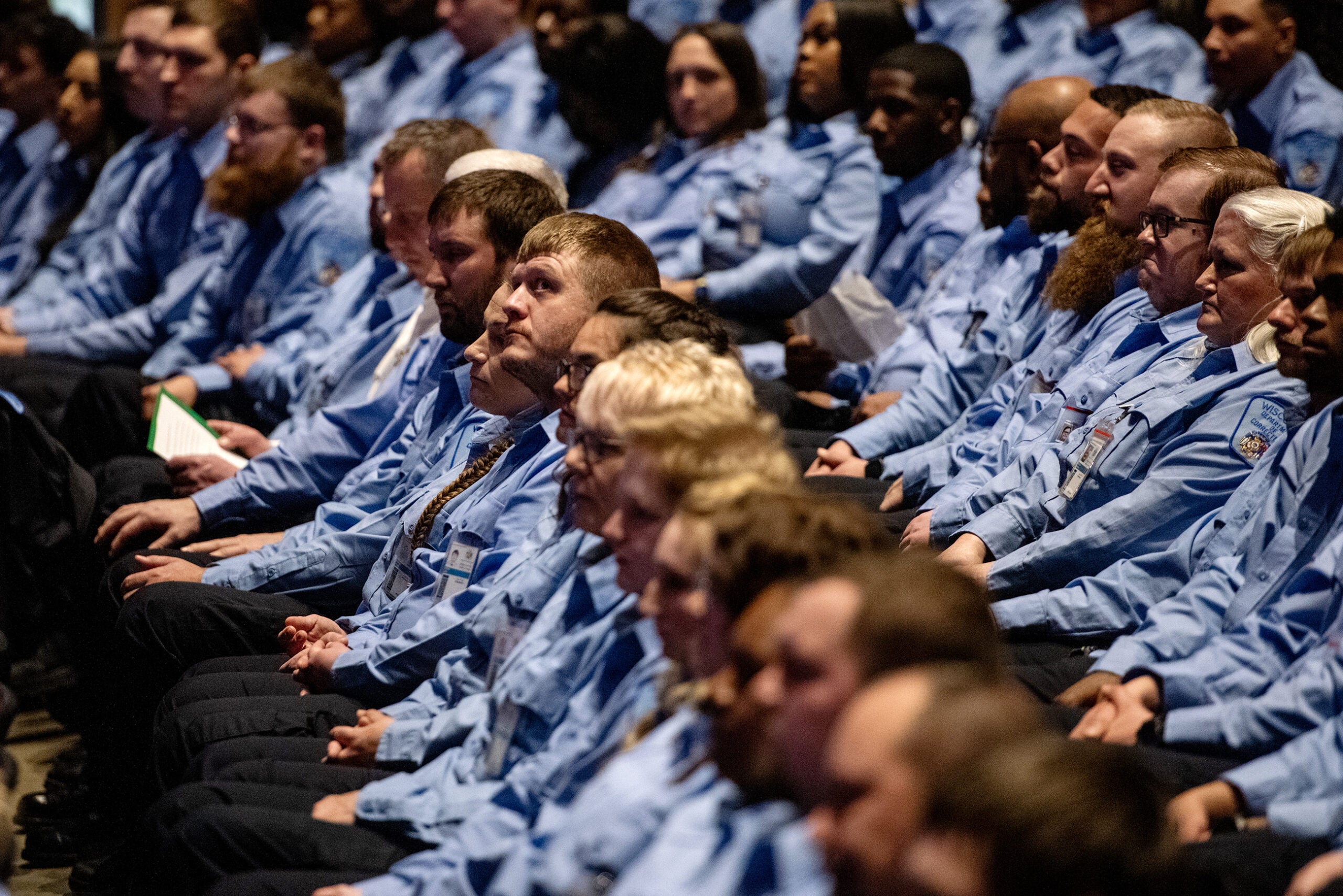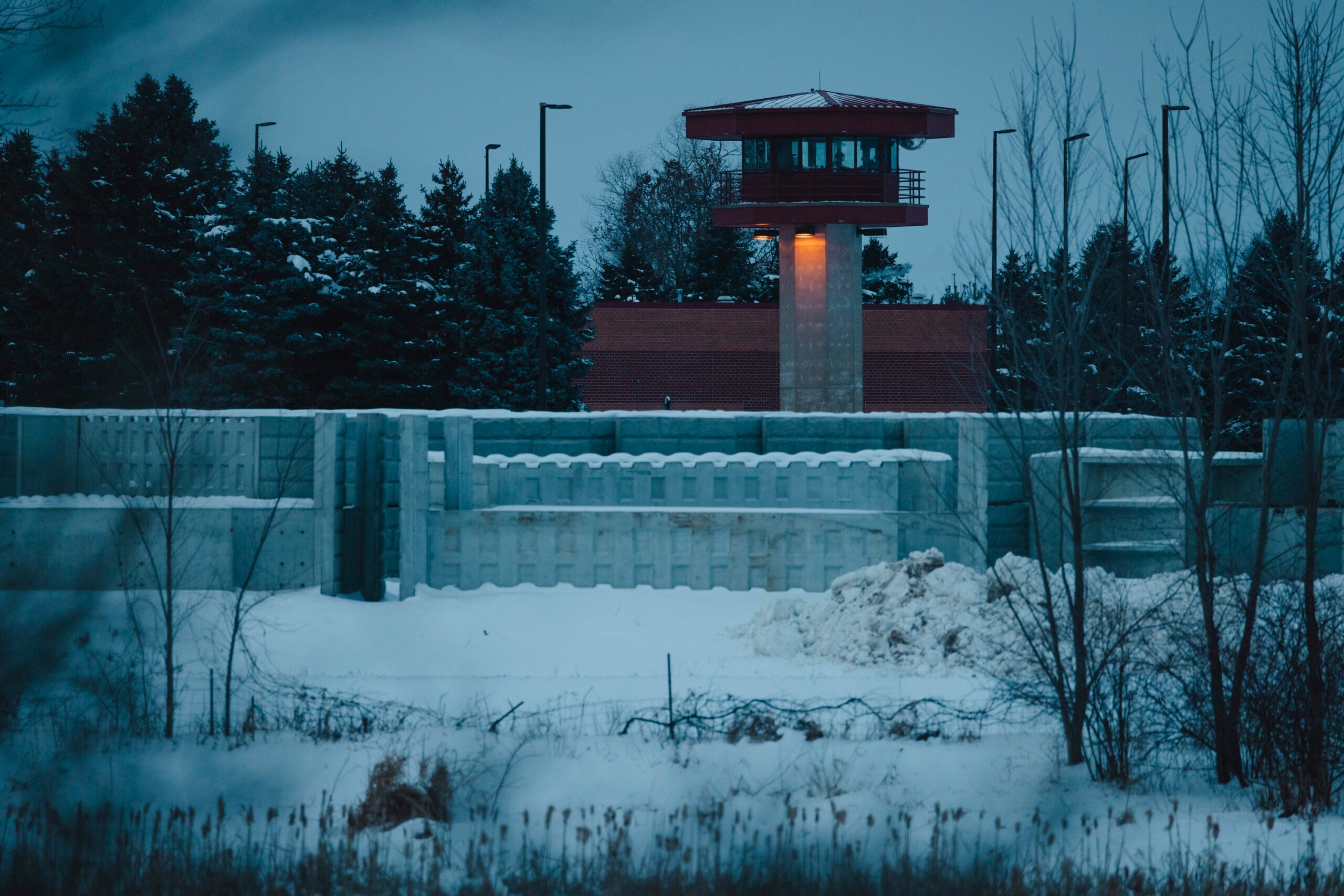Serving time in prison is supposed to be punishment, but it’s also a chance for offenders to learn to empathize with their victims and find ways to make up for the damage they’ve done. A team of University of Wisconsin-Platteville students are teaching an unusual gardening class to prison inmates, with the goal of helping them through that process while learning a skill they can use to give back to their communities.
Robin Cline of the UW-Platteville Transitional Help Center tried to explain the program’s concept to a dozen inmates gathered in a circle in a classroom at the Prairie Du Chien Correctional Institution.
“I called this project off the bat ‘the growing community,’” said Cline. “The whole purpose is for you to get those metaphors. The idea that it’s so primal to need to care for things to see things through, to overcome adversity, to reap those rewards and then to start all over again.”
Stay informed on the latest news
Sign up for WPR’s email newsletter.
Cline created this class a few years ago with the help of the Ridge and Valley Restorative Justice Program and recruited UW-Platteville students studying criminology to teach it. Inmates interviewed for this story asked that only their first names be used.
Jess is serving time for burglary. He said the garden metaphor works for him.
“I been locked up my whole life, so doing programs like this are like planting a seed,” he said. “You have to nurture a plant almost like a kid. It’s kind of weird to think about it that way but I think it’s going to show me how to become an adult.”
A recent class began with inmates sitting in a circle talking about how their crimes hurt their victims and the community.
After everyone had a chance to talk, it was time for some hands-on gardening.
One table was covered with dried lupin and larkspur plants that the inmates stripped of seeds.
After the gardening work was done, the inmates gathered again in a circle to talk about how to connect what they’ve learned to life after they’re released.
John is serving time for his sixth drunk driving conviction.
“To me, it’s self-satisfaction to watch that plant grow and think about yourself growing as an individual branching out to the community giving help,” he said.
The programming supervisor for the Prairie du Chien prison, Lisa Pettera, said this is different from the vocational horticulture classes offered in other prisons that focus on training inmates to work in a greenhouse or gardening supply store.
“It’s intended to turn these guys into master gardeners,” Pettera said. “It’s intended to be a foot in the door to their community.”
And for most ex-convicts that’s just as important as finding a job and a place to live.
Wisconsin Public Radio, © Copyright 2024, Board of Regents of the University of Wisconsin System and Wisconsin Educational Communications Board.

